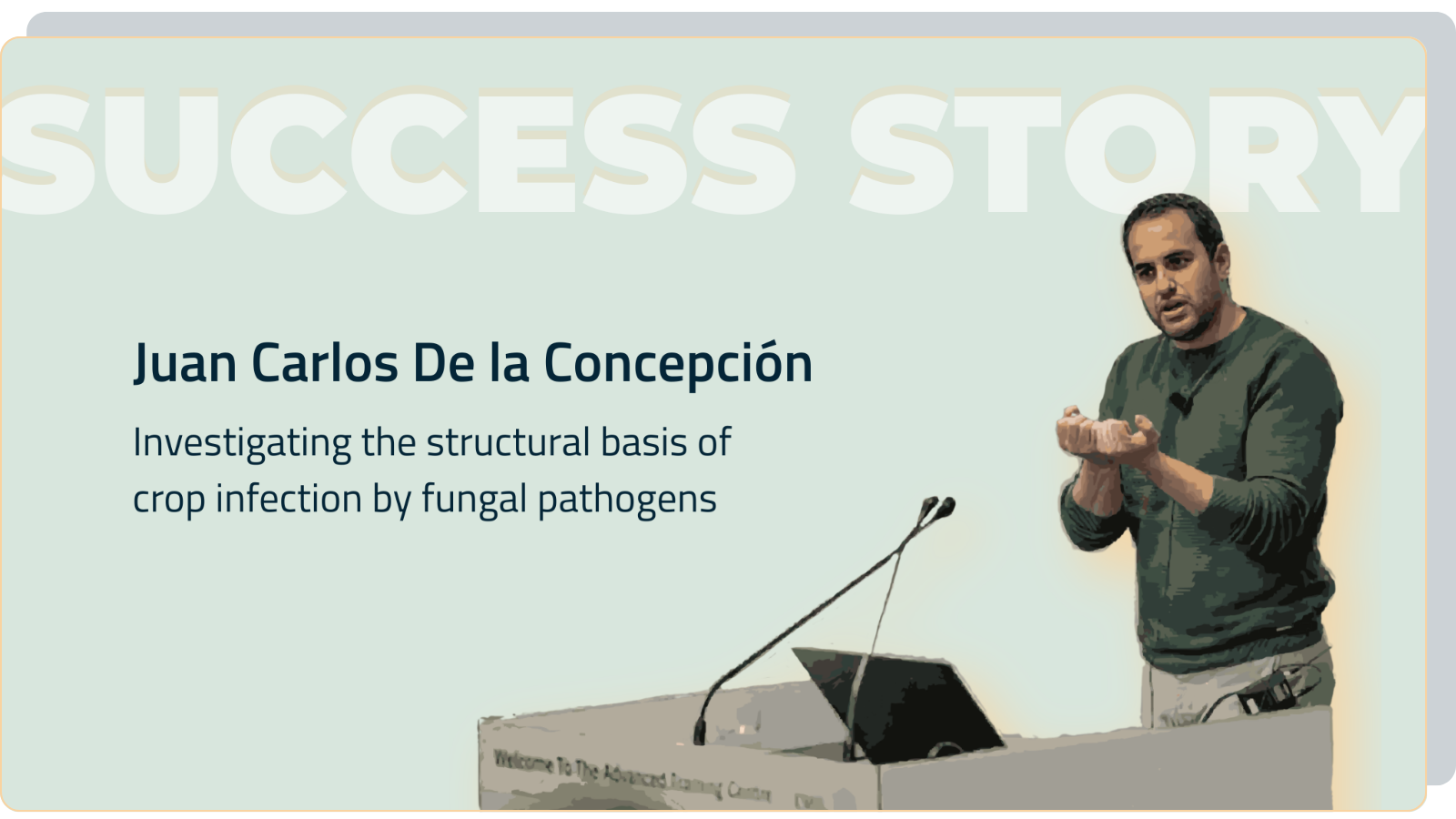Advancing research in fungal pathogens for the agroecological transition
We are thrilled to share the journey of one of our esteemed AgroServ users, Juan Carlos De la Concepción, a postdoctoral researcher at the Gregor Mendel Institute of Molecular Plant Biology who successfully applied to the 1st AgroServ Transnational/Virtual access Call for projects.
His research focuses on understanding the structural basis of crop infection by fungal pathogens, a critical area of study that addresses significant challenges in global food security. By employing state-of-the-art technology provided by AgroServ, Juan Carlos and his team are making strides in developing resilient disease control strategies to combat devastating plant diseases. This work aligns with the principles of agroecological transition, particularly the FAO's pillar of "Ecological Organization," which emphasizes the importance of understanding and utilizing ecological processes to enhance agricultural sustainability and resilience.
Read his contribution below to learn more about the innovative approach and potential impact on agriculture worldwide.
Plant diseases pose a significant burden to the global economy, resulting in the loss of up to 30% of annual food production. Fungal pathogens are responsible for some of the most destructive diseases in staple crops such as rice, wheat, and soybean. These pathogens present a major challenge worldwide, threatening global food security. Understanding the virulence mechanisms of fungal pathogens is crucial for developing resilient disease control strategies.
To penetrate the plant's mechanical defenses, multiple fungal pathogens create a specialized infection cell called the appressorium, which facilitates penetration and colonization. Disrupting appressorium formation, whether through genetic mutations or chemical treatments, renders these pathogens non-virulent, making it an attractive target for novel disease mitigation approaches. Unfortunately, our knowledge of the cellular architecture of the appressorium remains limited.
Thanks to AgroServ, our team is employing state-of-the-art cryogenic electron microscopy to investigate fungal virulence at high resolution. Access to this technology has facilitated a novel approach in our research, potentially providing insights into how diverse fungal pathogens invade crops. This research could aid in the rational design of strategies to combat some of the most devastating plant diseases, thereby contributing to solutions for major economic and humanitarian challenges.

The critical role of advanced research in combating fungal pathogens to enhance food security, economic stability, environmental sustainability, and overall health and well-being is highlighted clearly by De la Concepción. His work underscores how developing novel disease mitigation strategies that reduce reliance on conventional pesticides can potentially lead to biodiversity conservation and ecosystem health. By leveraging cutting-edge imaging techniques, his project not only advances agricultural practices but also contributes to scientific innovation and Europe's scientific competitiveness.
Furthermore, the implications for agroecology are profound. By focusing on the cellular architecture of fungal pathogens and their infection mechanisms, this research aligns with the agroecological principle of ecological organization, which emphasizes the importance of understanding and utilizing ecological processes to enhance agricultural sustainability and resilience. Developing resilient disease control strategies can lead to more sustainable agricultural systems that minimize environmental impact while ensuring food security and economic stability for farming communities.
In his research, Juan Carlos De la Concepción utilized the following AgroServ services:
Euro-BioImaging ERIC for Correlative Light and Electron Microscopy (EMBL-Node) + EMBRC-ERIC's SBR - Crystallography platform.
- Navigate our Catalogue of Services and put into action your research idea!
AgroServ thanks Ayoub El Ghadraoui for his input. Read more at EuroBioimaging.

0 Comments
Login or Register to post comments.